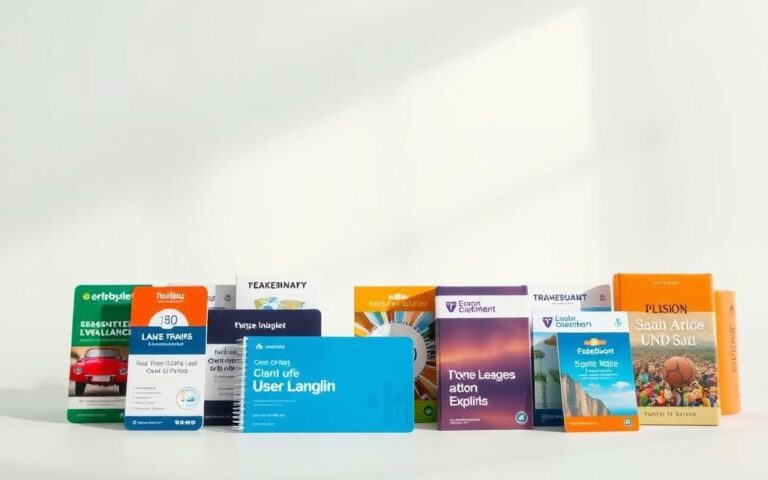Advertisement
About 9 million Americans live abroad. Many of them face unexpected money challenges in their new places. Dealing with money abroad can be tough. It involves dealing with money value changes, different living costs, and local banks. This article will give you important finance tips. It will help you plan your money better while living overseas.
Planning and understanding international money matters are key before moving. Studies show that expats who plan their finances well tend to enjoy their new life more. We will share tips that help you stay financially stable and make smart money choices overseas.
Understanding Currency Conversion and Exchange Rates
Living abroad means facing unique money challenges, especially with currency conversion and exchange rates. Expats must keep up with exchange rate changes. These fluctuations affect budgets and financial plans. Knowing the right time to convert money can lead to savings through better rates and lower costs. It’s crucial for those dealing with money across borders.
The Importance of Exchange Rate Awareness
Exchange rates decide how much money you get back when you convert currencies. Even a small rate change can have big effects. It can influence both small buys and big investments. Watching these trends helps expats pick the best times to convert. This makes sure they use their money wisely and avoid losses.
Tips for Minimizing Currency Exchange Fees
Cutting down on fees is key to smart money management when you’re abroad. Here are ways to keep those costs low:
- Use travel-friendly bank accounts that offer better deals for international use.
- Choose services with competitive rates and lower fees.
- Try paying in local currency to dodge extra charges from some payment methods.
- See if your bank works with overseas banks for lower fees or better rates.

Creating a Budget for Life Abroad
Getting used to life in a new country means making a budget that suits its unique financial scene. Expats often deal with different spending habits due to local culture, lifestyle changes, and the economy. Knowing these spending differences helps expats budget better. Using tech to keep track of expenses makes managing money easier.
Tracking Expenses with Technology
Tech is key in keeping an eye on finances for those living abroad. There are many apps to help expats watch their spending closely. Apps like Mint, YNAB, and PocketGuard are good choices. They link to your bank accounts and give updates on spending. This transparency with money makes budgeting less of a headache for expats.
Accounting for Cultural Spending Differences
Each culture has its own way of handling money, based on its values and traditions. Expats need to understand these differences to make a budget that works. Knowing what locals think of as necessary or extra spending gives insight on where to use your money. Adjusting how you spend to fit local habits not only keeps your budget in check but also makes living abroad more rewarding.

Choosing the Right Banking Options
Living abroad brings up the need for the right banking choices. Expatriates should find bank accounts that fit their special requirements. Look for accounts with low fees for international moves, no fees on foreign transactions, and great online banking services.
These features make it easy to handle money across countries. They also ensure a smooth banking experience.
Best Practices for International Bank Accounts
Choosing the best banks for expats needs careful thought about different factors:
- Choose banks with favorable fee structures, particularly for international transfers.
- Look for accounts that offer multi-currency support, allowing you to hold and transact in different currencies effortlessly.
- Opt for banks that provide reliable customer support in your preferred language.
Following these tips helps expats manage the challenges of international banking easily.
Mobile Banking and Financial Apps for Expats
In our digital world, mobile banking and financial apps are vital for expats. These tools provide:
- Real-time access to your accounts, enabling instant monitoring of transactions.
- Convenient features such as bill payments, fund transfers, and budgeting tools.
- Security measures designed to protect your data, crucial for digital banking for expats.
Using these digital solutions lets expats easily manage their finances in a new place.
Navigating Taxes and Legal Requirements
Understanding taxes as an expat is key to meeting all your legal duties abroad. Every country’s tax rules are unique and can be complex. This is especially true when you also consider the U.S. tax obligations you still have. Knowing what these responsibilities are is vital to stay compliant and avoid penalties.
Understanding Your Tax Obligations as an Expat
As an expat, you’ll need to juggle the tax laws of your host country and your home country. It’s important to learn about the local tax rates, how to report your income, and any treaties that might help you save on taxes. The U.S. makes its citizens file taxes, no matter where they live. Staying informed helps you avoid fines or other legal problems.
Seeking Professional Advice for Financial Compliance
Getting financial advice is critical for dealing with international tax laws. Tax professionals who know about expat taxes can offer tips to use tax benefits like foreign tax credits well. They make sure you file all your paperwork right and on time.
| Expat Tax Obligations | Legal Requirements for Expats | Tax Compliance Tips |
|---|---|---|
| Understand local tax laws | Register with local tax authorities | Keep accurate financial records |
| File U.S. tax returns | Know deadlines for tax submissions | Hire a qualified expat tax advisor |
| Research tax treaties | Understand dual tax agreements | Review your tax situation regularly |
Building an Emergency Fund While Abroad
Living in another country makes having an emergency fund critical. This fund is your safety net for unexpected events like health emergencies, losing your job, or sudden travel needs. It’s important to figure out how much to save by considering your lifestyle and living costs there.
How Much Should You Save?
Expats should save a budget for three to six months of living costs in their emergency fund. The exact amount depends on local living costs, your situation, and available social safety nets. Knowing the costs helps you save the right amount for any financial surprises.
Strategies for Saving While Managing Expenses
It’s vital to save for emergencies without hurting your regular budget. Try saving about 10% of your income in a savings account that earns lots of interest. Also, use budget apps to spot where you can spend less. This lets you save more over time. With these smart money moves, you can build a strong emergency fund and feel more secure while living abroad.



